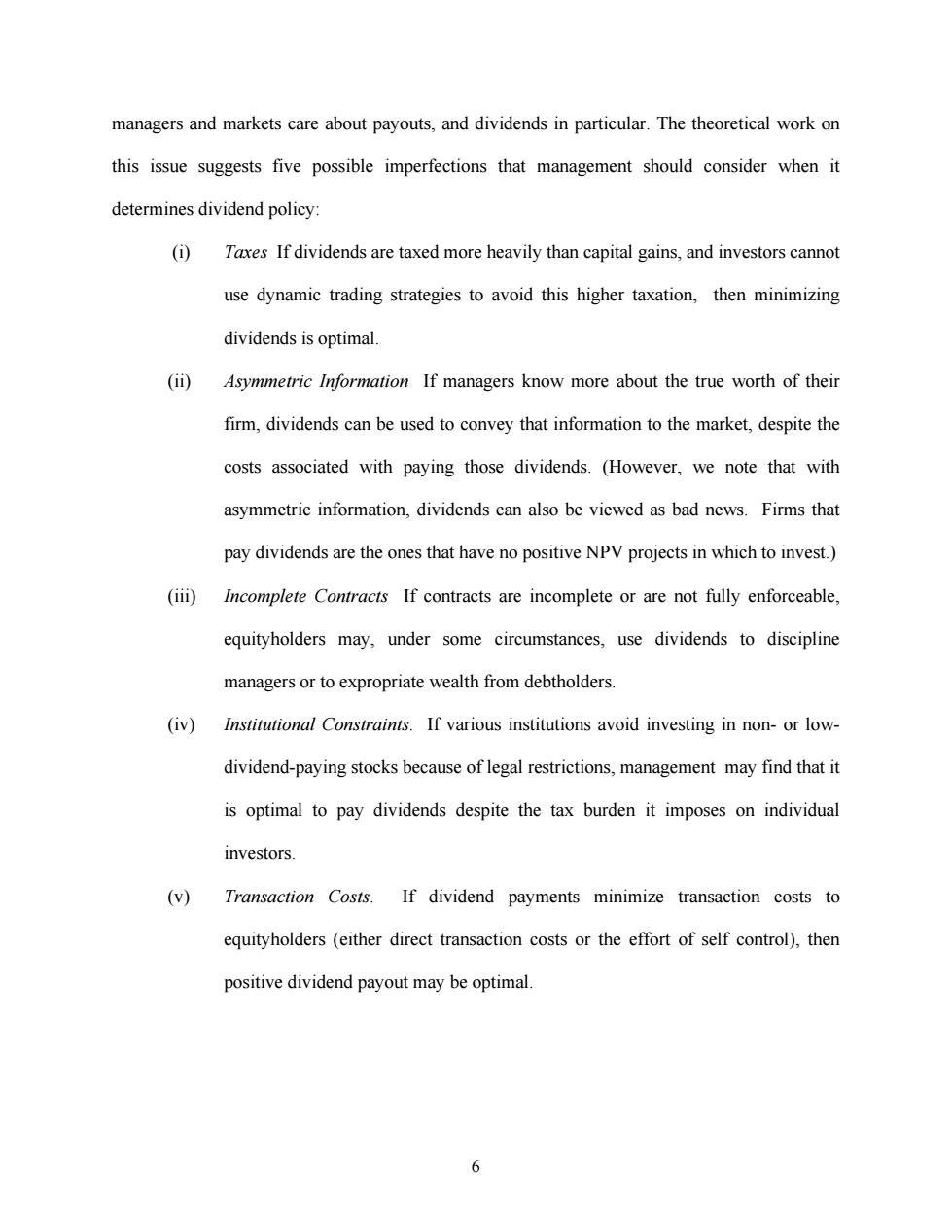正在加载图片...

managers and markets care about payouts,and dividends in particular.The theoretical work on this issue suggests five possible imperfections that management should consider when it determines dividend policy: (① Taxes If dividends are taxed more heavily than capital gains,and investors cannot use dynamic trading strategies to avoid this higher taxation,then minimizing dividends is optimal. (i) Asymmetric Information If managers know more about the true worth of their firm,dividends can be used to convey that information to the market,despite the costs associated with paying those dividends.(However,we note that with asymmetric information,dividends can also be viewed as bad news.Firms that pay dividends are the ones that have no positive NPV projects in which to invest.) (iii) Incomplete Contracts If contracts are incomplete or are not fully enforceable, equityholders may,under some circumstances,use dividends to discipline managers or to expropriate wealth from debtholders. (iv) Institutional Constraints.If various institutions avoid investing in non-or low- dividend-paying stocks because of legal restrictions,management may find that it is optimal to pay dividends despite the tax burden it imposes on individual investors. (V) Transaction Costs.If dividend payments minimize transaction costs to equityholders (either direct transaction costs or the effort of self control),then positive dividend payout may be optimal.managers and markets care about payouts, and dividends in particular. The theoretical work on this issue suggests five possible imperfections that management should consider when it determines dividend policy: (i) Taxes If dividends are taxed more heavily than capital gains, and investors cannot use dynamic trading strategies to avoid this higher taxation, then minimizing dividends is optimal. (ii) Asymmetric Information If managers know more about the true worth of their firm, dividends can be used to convey that information to the market, despite the costs associated with paying those dividends. (However, we note that with asymmetric information, dividends can also be viewed as bad news. Firms that pay dividends are the ones that have no positive NPV projects in which to invest.) (iii) Incomplete Contracts If contracts are incomplete or are not fully enforceable, equityholders may, under some circumstances, use dividends to discipline managers or to expropriate wealth from debtholders. (iv) Institutional Constraints. If various institutions avoid investing in non- or lowdividend-paying stocks because of legal restrictions, management may find that it is optimal to pay dividends despite the tax burden it imposes on individual investors. (v) Transaction Costs. If dividend payments minimize transaction costs to equityholders (either direct transaction costs or the effort of self control), then positive dividend payout may be optimal. 6